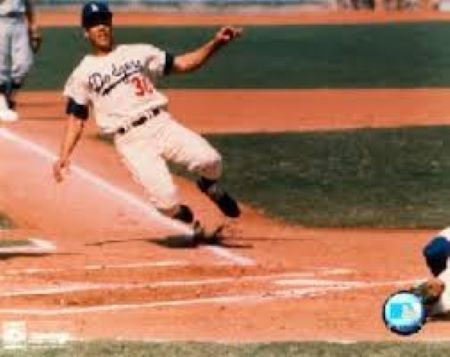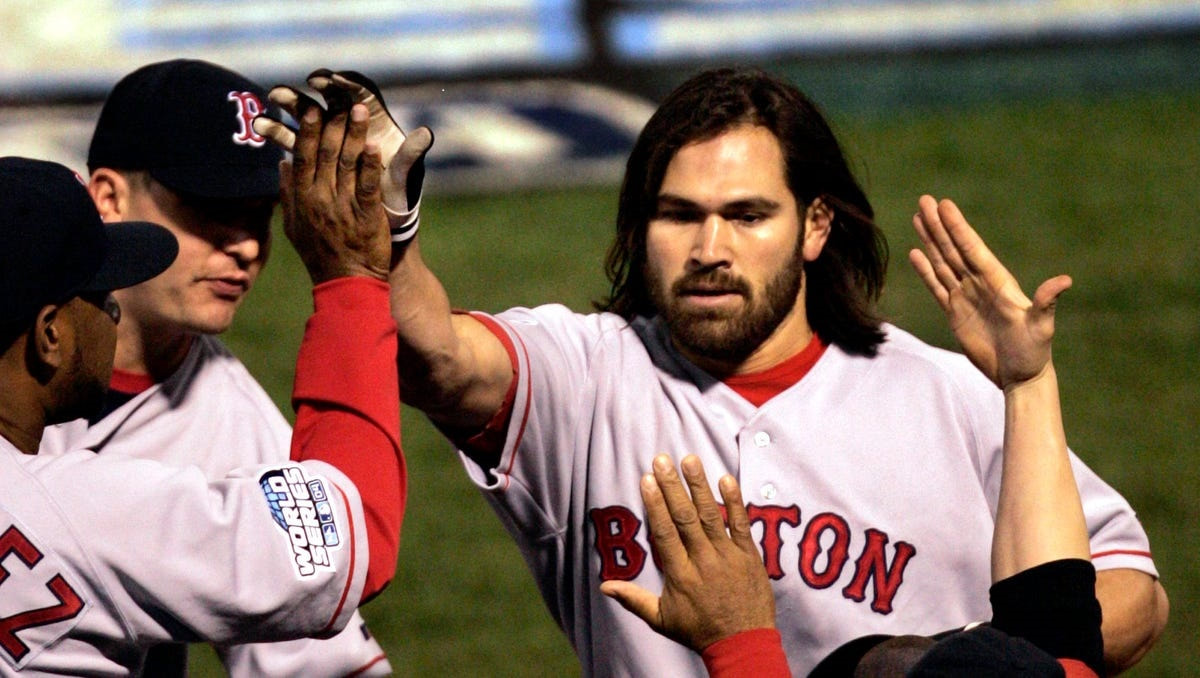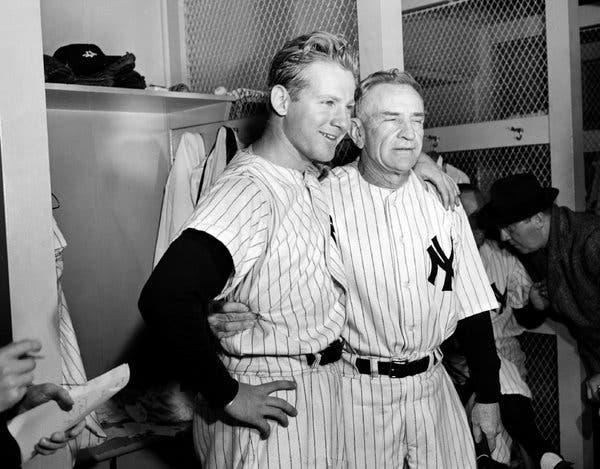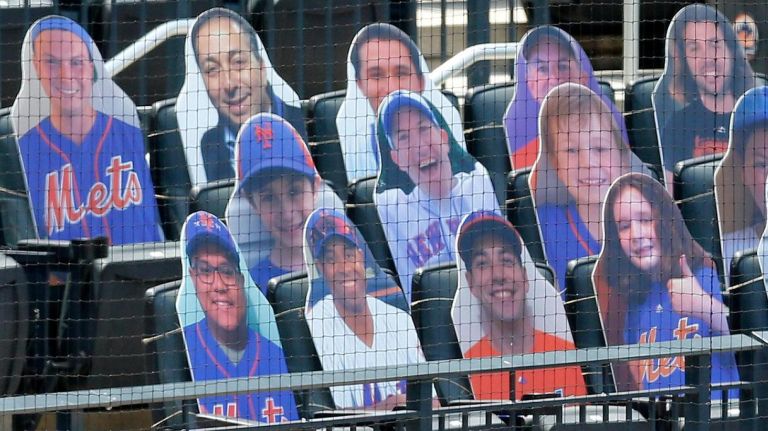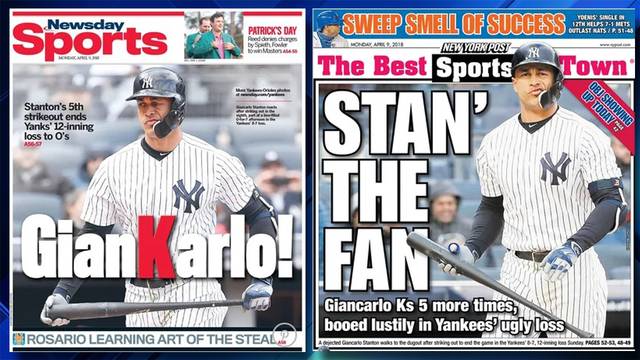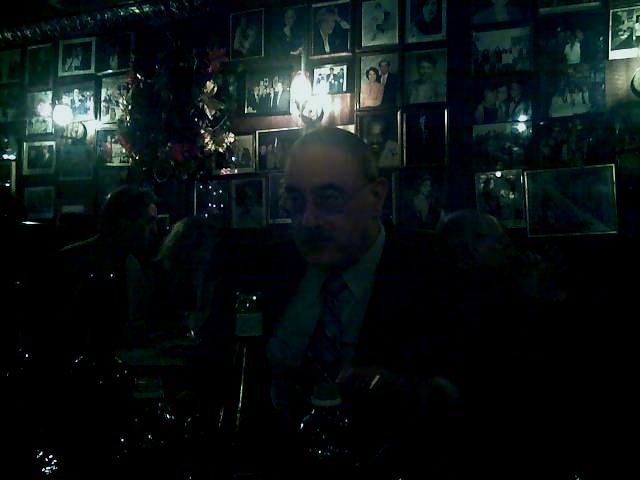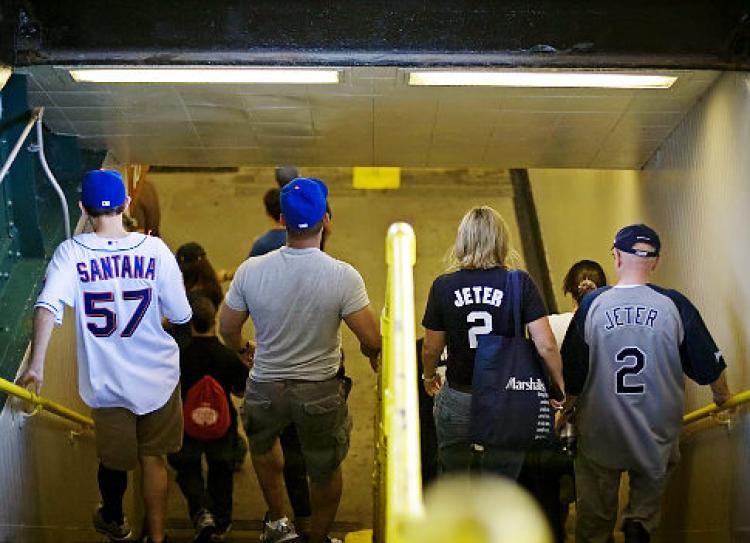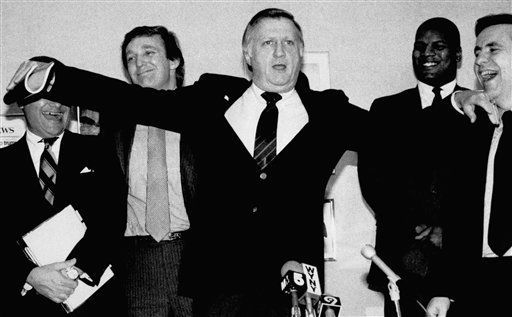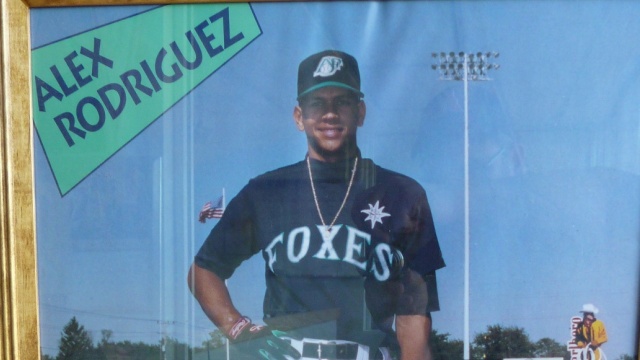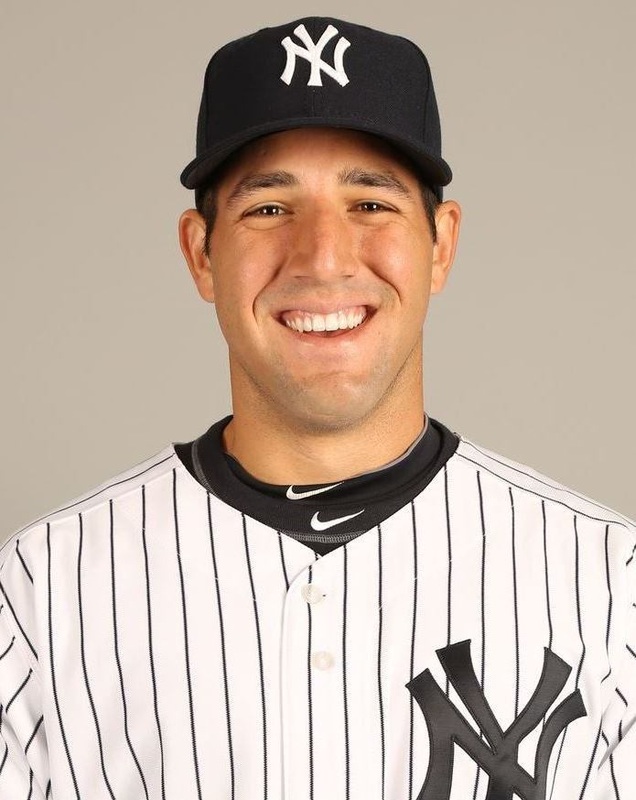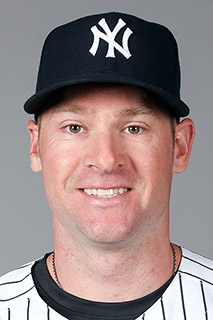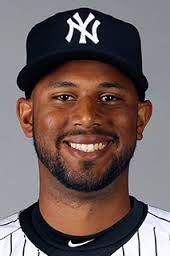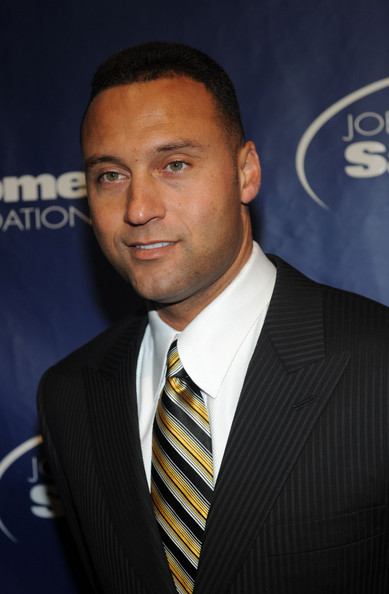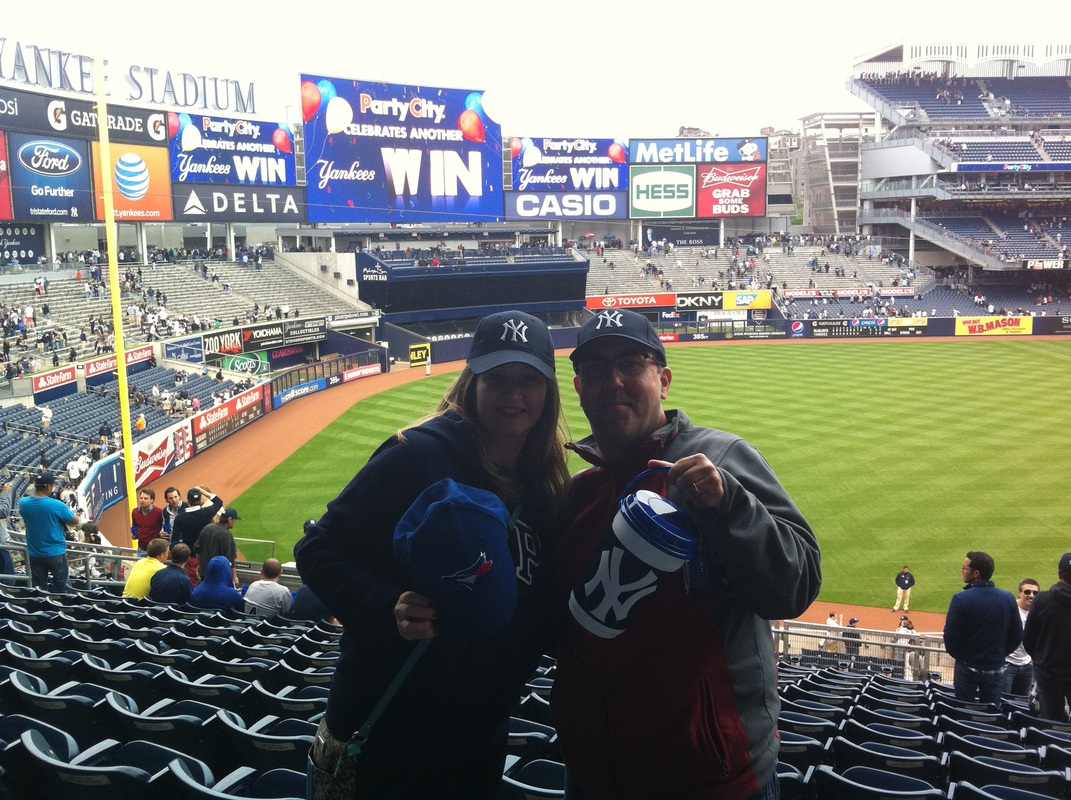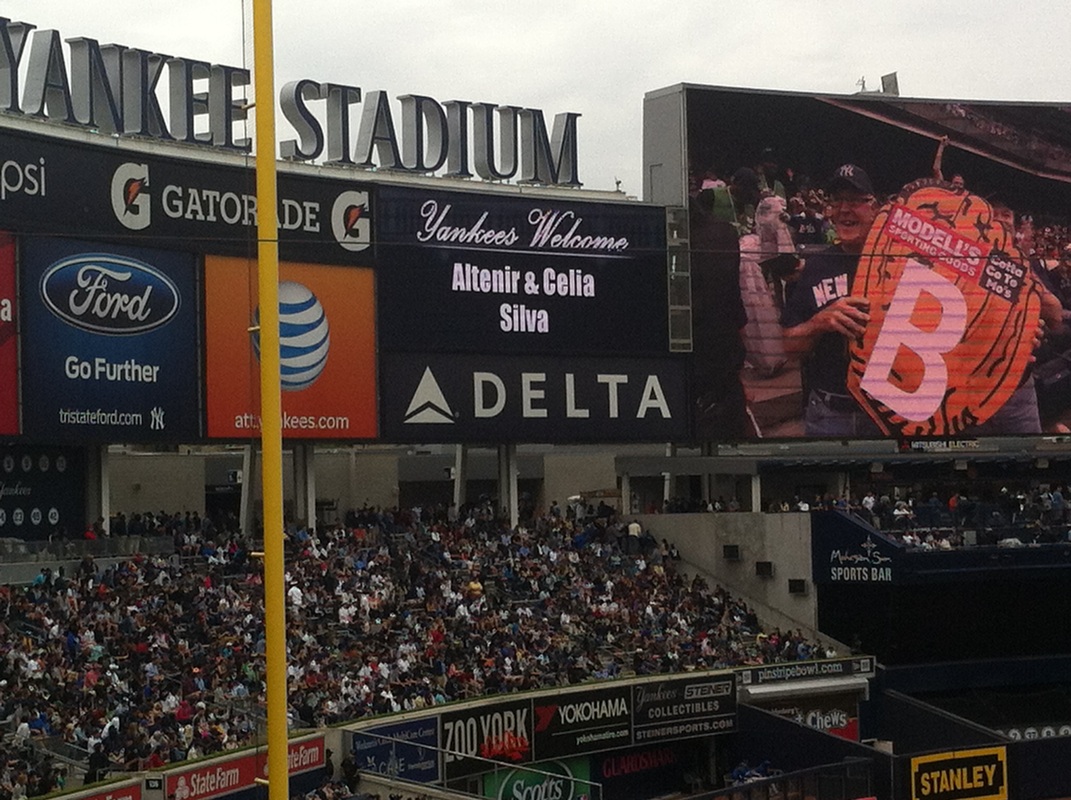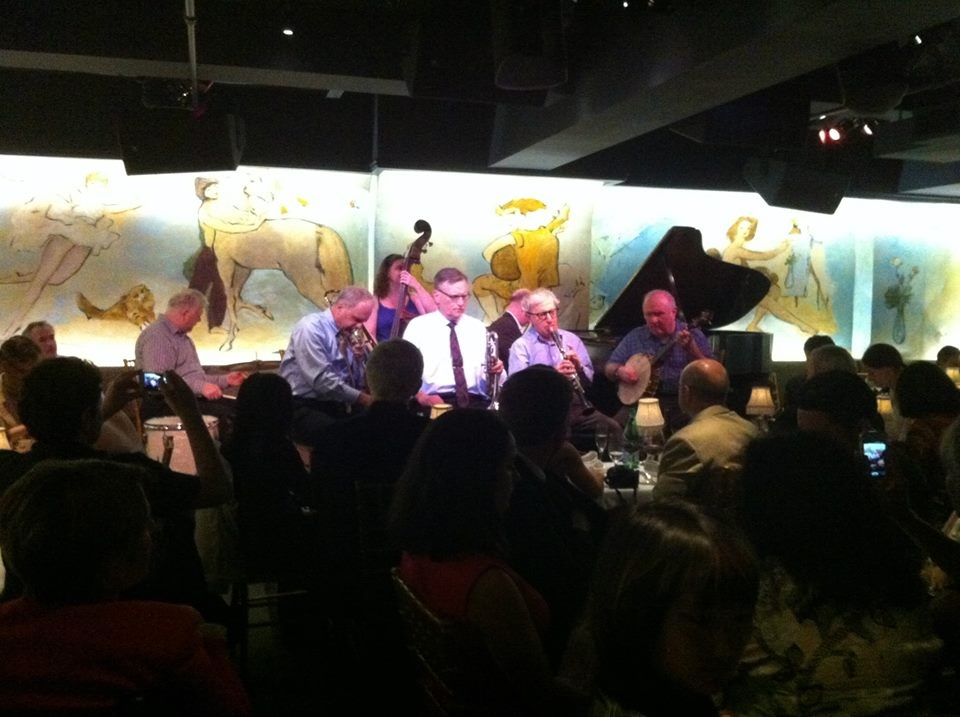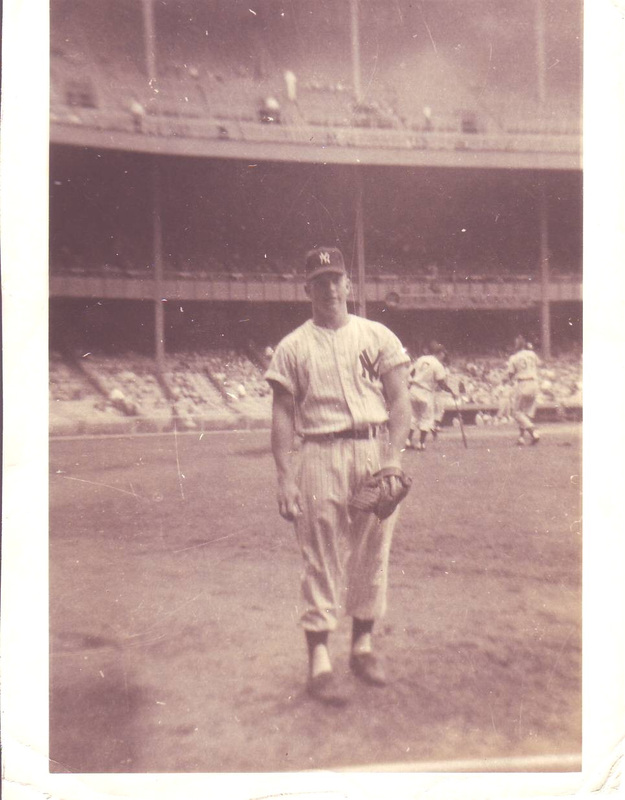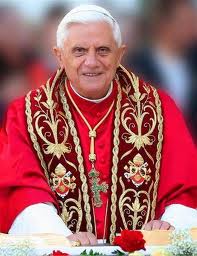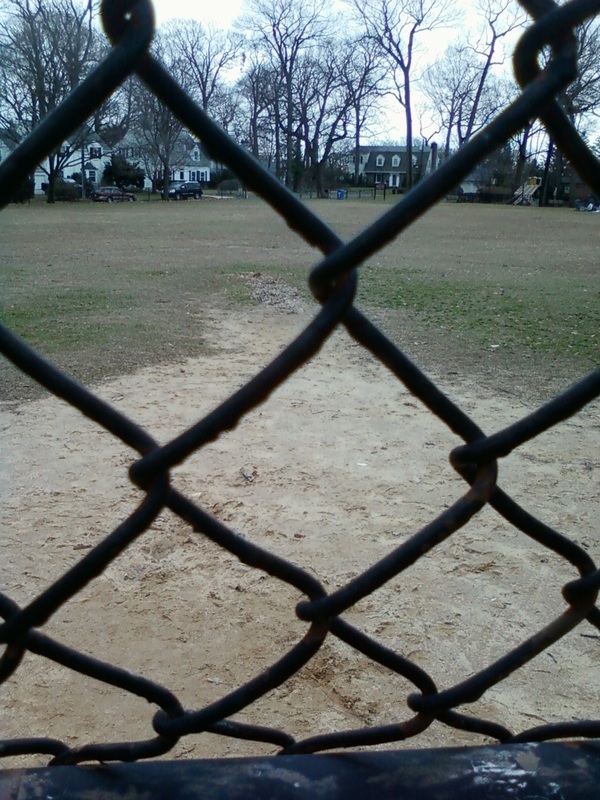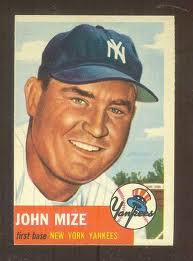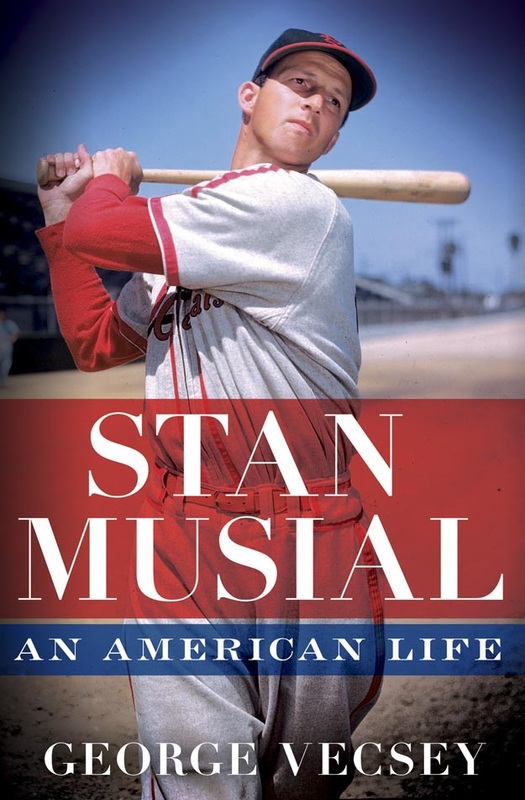|
This is why I love baseball: No matter how hard the new analytics types try to invent a new sport, the ashes of the old game, the real game, spark into flames again. On the day before Maury Wills passed, a current major-league player performed some derring-do worthy of the old master. Terrance Jamar Gore is not dashing into the Hall of Fame or even a steady spot on a major-league roster. But when a contending team needs what sports broadcasters like to call “foot speed,” plus “smarts,” Gore is often hailed from the minor leagues to bedevil pitchers, catchers and whoever is supposed to be covering the next base. Maury Wills did the bedeviling on a daily basis for 14 major-league seasons, winning three World Series for the Los Angeles Dodgers. His life – the ups, the downs – was described by Rich Goldstein in the NYT on Tuesday. Before I get to Terrance Gore, Wills’ spiritual descendant, I will share two visions of Wills: ---At the peak of his career as brilliant leadoff man for the light-hitting but championship Dodgers, Wills threw his smallish body at the next base and its surrounding dirt paths – enough to incur red abrasions, known in the trade as “strawberries,” on his hips. The off-season was not long enough to heal them, so by the following March Wills would be grinding his skin all over again. (Some old-timers wore sliding pads inside their uniforms but Wills and other players preferred uniforms tailored for their slight builds, hence perpetual strawberries.) ---Wills did not merely steal bases. He borrowed baseball wisdom from ancients like Casey Stengel, when the Old Man managed the new team in New York in 1962. I cannot pin down when and where this happened, but I heard about it since 1962: Casey was giving a pre-game sermon to some Mets about the value of the “butcher boy” – slashing the ball downward, better than a bunt. The Mets seemed bored by the lecture but Casey noted one astute pair of eyes belonging to Maurice Morning Wills, the Dodgers’ shortstop, at the edge of the circle. The Old Professor was happy to have one student. So that was Maury Wills. Baseball has since evolved into a perpetual home-run derby, with would-be sluggers armed by details like “launch angles” and “exit speed.” Speaking of home runs, both New York teams had long-ball frolics Tuesday evening—Aaron Judge hitting No. 60 and Giancarlo Stanton hitting a walk-off grand-slam homer for, yes, you got it, the Bronx Bombers, and the Mets coming back from a 4-0 deficit on a 3-run blast by Pete Alonso and a grand-slam by Francisco Lindor. Quite a night for “exit speed.” Before that, the Mets won a game last Sunday on the legs and wits of Terrance Gore, all 5 feet, 7 inches and 160 pounds of him. Gore is 31 and with a ball cap on his head he looks half that age. He has a .217 major-league batting average, higher than that of some lugs lunging at every pitch. He is a stolen-base specialist, used in vital circumstances in big games, and already has three World Series rings and would not mind running and sliding the Mets into this year’s Series. The Mets picked him up from the minors in August, and he got into the tie game when Tomas Nido led off the eighth inning with a single. Everybody knew why Gore was out there. The pitcher threw several times to first base to keep him close, but Gore confidently edged back onto the dirt basepath, busting for second as soon as the pitcher threw home. The catcher’s throw flew into center field and Gore scrambled up and darted to third, and he scored the tie-breaking run on a single by Brandon Nimmo. Home runs are fine. But even with the gigantic pitching staffs of today, the game should have room for a running specialist. And if you are not yet charmed by the concept of the running specialist, ladies and gentlemen, the professional pride and knowledge of Mr. Terrance Jamar Gore: On the morning after, what are your reactions to the wild-card game Tuesday evening? (I notice one of our regulars, in the Comments section, is celebrating the 6-2 loss by the Brooklyn Dodgers' old tormentors.)
* * * "Red Sox-Yankees: As good as it gets." I heard myself – steadfast Brooklyn/ Mets/National League fan – uttering those words when the Red Sox and Yankees wound up in Tuesday’s wild-card game. It really is baseball’s classic matchup -- between two teams that have never been mine. I’m old enough to remember being at Jones Beach, middle of last century, and hearing stereophonic portable radios blaring Joe DiMaggio drubbing Ted Williams, over and over again, an endless summer of Mel Allen, blaring from blanket to blanket. When I became a sportswriter, I rooted (unofficially, of course) for the underdog Red Sox but there was always a Bucky Dent or an Aaron Boone. I have never been a Red Sox fan, per se, but I loved the city of Boston from my first trip there in 1962, and I used to think maybe someday we’d live there. And Fenway Park – the wall, the deep right-field stands, the skyline, the immediacy of that great city. A ball park, a city, worth rooting for. I was rooting for the Red Sox on Oct. 5, 1978, when the two historic teams met in a one-game playoff. We had driven our oldest child to visit a college in the Northeast, and while she and my wife were taking a tour, I sat in the car and listened to Russell Earl Dent morph into Bucky Freaking Dent. Who doesn’t remember those autumnal mood swings that baseball does so well? This past week has aggravated the angst for aging fans of the Boys of Summer. We remember Oct. 3, 1951, when Bobby Thomson of the New York Giants drilled a home run into the left-field stands of the Polo Grounds and into collective memory of Brooklyn Dodger fans. I remember coming home from junior high and hearing the terrible deed—and wandered outside to pick a fight with a much larger Yankee fan in the neighborhood. A friend asks: why fight Bluto? That was the point. Being a Brooklyn Dodger fan was masochistic, by definition. My pal Jerry Rosenthal was a Brooklyn kid. When Thomson smote Ralph Branca, Jerry recalls, he cried for two days. (When Jerry played ball in the minors, his hitting coach was Pafko-at-the-Wall. They talked lovingly about Brooklyn.) Talk about memory. George Hirsch, one of the founders of the New York City Marathon, wrote about his memories – how he and some buddies came down from suburban New Rochelle to watch the game. Hirsch wrote about it for the New York Times last Sunday, and he also appeared on CBS Saturday morning: https://www.nytimes.com/2021/09/30/nyregion/70-years-later-bobby-thomsons-homer-still-hurts.html https://www.youtube.com/watch?v=rMprziU_xok The Dodgers and Giants formed the great baseball rivalry, but that was then, in a different New York. Those two teams moved to California and broke a lot of hearts, including mine. To be sure, they remained rivals. I was in the press box in Candlestick Park in 1965, when Juan Marichal clubbed John Roseboro over the head at home plate – as ugly as it gets. Then there's this: the Yankees and Red Sox never left town. Gotta give them that. In 2004, the Yankees drubbed the Sox, 19-8, for a third straight victory in the AL series. I will never forget being in that tiny Red Sox clubhouse and hearing Johnny Damon say (and I am writing from recall): “If I am not mistaken, we won four straight games eight times this season.” His point was: they could do it again. And they did, beating the Yankees four straight and then the Cardinals four straight in the World Series for their first championship since Babe Ruth and 1918. The Red Sox’ four straight victories over the Yankees in 2004 is now part of their rivalry – payback, as good as it gets. There, I said it again. The first Yankee player I ever met was Whitey Ford, who died Friday at 91.
I was a kid at Newsday, the great Long Island paper, covering the high schools, and my mentors would occasionally take me to Yankee Stadium, the only New York ballpark open during what I call the Dark Ages. Either Jack Mann, the sports editor, or Stan Isaacs, the columnist, introduced me to Ford, in a corner of the clubhouse. Ford lived in Lake Success, just over the city line, and he was identified as “the crafty Long Island southpaw.” We wrote about him a lot because he was a great pitcher and because he was friendly. Not all the Yankee players were. I was not disappointed in the introduction. Whitey Ford offered his hand and fixed his alert eyes on me – a Queens guy, with accent to match. “Nice to meet you,” he said, and he made small talk, and I got the impression that I could talk to him, win or lose, and I was not wrong. For the rest of his career, Whitey Ford was available. He liked the coverage he got from his hometown paper, of course, but he also deserved it. For six of his first seven seasons, the Yankees won the pennant. I’m sure the Times and other papers will give proper respect to Ford’s marvelous career. I’ll stick to personal memories of Edward Charles Ford: --- When Ralph Houk replaced Casey Stengel in 1961, one of the first things he did was use Ford in 283 innings, the highest of his career. Perhaps Casey had been wary of Ford’s modest size, did not want to wear him out, but Ford became more of a workhorse through 1965. Houk rarely gave incisive answers to young reporters – known as Chipmunks because we chattered so much – but one day the manager visited Ford on the mound, as if to take him out, but instead he left him in, with good results. When we asked Houk later, he said: Whitey always told him the truth. If he was out of gas, he said so. If he still had something left, he said so. Houk’s answer seemed to me the ultimate affirmation of Ford, as pitcher and competitor and team player. -- Distinct memory of Whitey Ford from my first year or two: I cannot replicate it from the records, but I know I saw it: Two outs. Two strikes. A runner or two on base. My boss, Jack Mann, nudged me: “Watch this.” A hellacious curve broke in on the lefty batter, who lunged at the ball, as Elston Howard caught it – and sprinted to the dugout – as the visiting manager screamed bloody murder from the dugout steps. The manager said the ball had been doctored by Howard’s ultra-sharp belt buckle, but when asked later by intrepid reporters, Elston and Whitey knew nothing. Nothing. Ford's stuff and brain were enough on 99 percent of his pitches. He said it was Howard who named him "The Chairman of the Board." --- Ford was a good friend of Mickey Mantle, at all hours and all seasons – the city boy and the country boy. They called each other “Slick.” Ford would never try to explain his moody pal, but sometimes he could joke with Mantle, get him into a mood to talk to reporters. Life was so much easier that way. -- In those days, reporters traveled on the same charter flight as the Yankees – it made travel easier, and Newsday and the Times paid their own way, of course. The Yankee plane came back from Kansas City or Minnesota long, long after midnight, and at the baggage claim, I offered a ride home to Ford, and Hector Lopez, who lived on the way. I just needed to get my car in a nearby parking lot, while they guarded my suitcase. But when I got to my car, there was a flat tire – and my spare was shot – so I needed help. There were no cellphones in those days, kids, so I couldn’t notify Ford and Lopez that I was stuck. Needless to say, they – and my suitcase – were not at the terminal when I finally swung by. Okay. Next morning, at a reasonable hour, I got a call….from Whitey Ford….who said he had my suitcase at his house, and I could pick it up when convenient. That made him a major-league mensch in my book. May I just say that not every ball player would be as thoughtful. -- Ford’s body fell apart in 1966 and ’67 and he was sanguine about it. One day, in New York smartass humor, I jokingly called him “the game southpaw.” He twinkled as he corrected me: “the gamey southpaw.” But his career stats and his Hall of Fame stature smell like roses. -- Ford and Mantle were friendly with a chatty clubhouse attendant out of Fordham University named Thad Mumford, who was smarter and funnier than any ball player or any reporter, for that matter. Munford moved on, but at subsequent Old Timers Days, Mantle and Ford would spot him and the badinage would pick up, all over again. One year, Mantle drawled, “Hey, Thad, would you get me a beer?” Ford, with city-cat patronization, advised Mantle, “Hey, Slick, Thad writes for “M*A*S*H,” and Mantle blushed beet-red, as he sometimes did. Munford loved it – and went to get a beer for his old pals. Mumford would have occasional bouts of nostalgia out in California, and would call some old-time contacts. Thad passed two years ago; he counted Ford as one of his best Yankee friends. Now the Chairman of the Board is gone, but his records remain, and so does the twinkle from a friendly corner of the long-vanished Yankee Stadium. * * * https://www.nytimes.com/2020/10/09/sports/baseball/whitey-ford-dead.html https://www.baseball-reference.com/players/f/fordwh01.shtml Cardboard spectators stared vapidly from behind home plate, their expressions never changing as the Mets and Yankees committed something akin to baseball.
This was the ambiance at New Shea Saturday night as Major League Baseball introduced Covid-Ball, a makeshift version of the great American pastime, or what used to be. Cruel boss that I am, I assigned myself to stick it out as a preview, or warning, of what this truncated season will be, if it lasts its threatened 60 games. (Some wary big names have already dropped out for this season; others are trying to come back from a Covid attack. To be continued.) This was only an exhibition, spring training in mid-July, and there was to be another one at Yankee Stadium Sunday evening before the “season” opens late in the week. I will tell you up front that my biggest thrill of the night was seeing the aerial view of Queens, my home borough – the globe in the park, a glimpse of the wonderful Queens Museum, the No. 7 elevated train gliding through the neighborhood, as sweet as a gondola through Venice. Oh, my! I am so homesick for Queens! I thought of the joys within a mile or two of this sweet spot – my friends and the heroes at Mama’s deli on 104th St., other friends at the New York Times plant, just to the east, the food and the crowds in downtown Flushing, the Indian food in Jackson Heights, and so on. I miss all these at least as much as baseball. There was a strange hybrid form of baseball taking place in New Shea. Yankee manager Aaron Boone was moving his jaws inside his soft gray mask, either chewing something or talking a lot. The first home-plate ump (they mysteriously rotated during the game) had some kind of plexiglass shield inside his mask, to ward off virulent Trumpian microbes. I was mostly watching the Mets’ broadcast, with good old Ron and good old Keith two yards apart in one booth and good old Gary in a separate booth, but their familiarity and friendship came through. Welcome to this strange new world. Later I switched to the Yankee broadcast and realized Michael Kay and the others were not in Queens but were commenting off the same video we were seeing. Not sure how that will work out during the season. Early in the game I learned that the Toronto Blue Jays will not be able to play in that lovely city this “season,” for fear of being contaminated by the virus the viciously bumbling Trump “government” and block-headed Sunbelt Republican governors have allowed to rage. I don’t blame the more enlightened Canadian government – but a few days before the season opener? The Jays will apparently play in Buffalo, creating all kinds of logistical horrors for anybody in Ontario with Blue Jay business. The highlight of Saturday’s exhibition was Clint Frazier, the strong-minded Yankee outfielder who plans to wear a kerchief-type mask during games, including at bat. Does a mask impede a batter’s reaction to a fastball, up and in? Maybe. But Frazier unloaded a 450-foot homer into the empty upper deck – (Sound of summer: Michael Kay: “SEE-ya!”) -- and some teammates in the dugout flashed masks in tribute to Frazier. I obsessed about those cardboard fans behind home plate. The absence of real people takes away one of the peripheral joys of watching a game – demonstrative or even annoying fans, the occasional celebrity, and, yes, I admit, women in summer garb. Will these faux fans become part of lore? Will they be rotated, replaced by new faces during the “season?” Just asking. Finally, there was the recorded crowd noise, an apparently steady hum. No pro-Met chants, no anti-Yankee jibes, just background, like the roar of the sea, I caught the last inning on the Mets’ radio broadcast, where good old Howie was speculating that the home-team genies in the control room were raising the sound a bit when the Mets were rallying. I stuck it out because I had assigned myself to “cover” the event. But I wondered about the reaction of my pal, Jerry Rosenthal, one-time all-conference shortstop at Hofstra, two-year Milwaukee Brave farmhand, and now lifetime baseball purist and authority. How did Jerry like the ersatz game? He texted: “Watched one inning of the game. I am now watching ‘The Maltese Falcon” for about the 25th time. That should tell you something!” Yes, it does. Play “ball.” It is a pleasure to watch post-season baseball -- if only to observe a better brand of ball than the wretched grade I have been following during the season.
I am referring to my twisted loyalty to the Mets. (Long retired, I can openly admit this sick little tendency.) In the post-season, outfielders can track a ball and get in position to throw home. Infielders don’t always double clutch before throwing to first. First basemen scoop up bad throws. Catchers block errant pitches. And throwback of all throwbacks, the occasional hitter can make the occasional adjustment and swat an outside pitch to the opposite field. I love watching Houston play (Altuve!) and I love watching the Red Sox play (Betts!) – the ultimate truism; what’s not to love? – and I am only sorry one of them must go down in the American League series. Even the Yankees were admitting the better team won in their concluded series, which is gracious but also blatantly evident. The Yankees were built for their latter-day Ruthville and Marisville in right field. They also seemed totally committed to the Cult of the Launch Angle, which has taken over baseball in recent years like killer algae on the seashore. Take-a-hack has informed the formation of teams. Sluggers slug with permission from the analytics bunch in the Bat Cave of baseball. No shame in striking out. However, the Red Sox also have retro skills in making contact and stealing bases successfully, when strategically needed. The smart ones adjust. Jacob DeGrom of the now mercifully hibernating Mets had an epic season because he figured out that hitters were swinging from their butts in arcs approved by the new breed of baseball – Pak Man baseball. Hitters were hacking at pitches from ankles to waist to produce that beloved launch arc. DeGrom fooled them by pitching strikes up near the letters. Imagine if DeGrom had a team behind him. Sorry, it’s been a long season. The Yankees went out and acquired Giancarlo Stanton, from their good pal Cap’n Jeter in Miami, and Stanton had a rocky Red Sox series. This is quite enough to earn the nickname Mister December from a Yankee-fan friend of mine. (Stanton came to the Yankees last December.) The fans were booing Stanton as he struck out in the final failed rally Tuesday evening, and it may carry over. (Imagine what the Boss would do about the snafu involving Luis Severino's rushed warmup on Monday or the whiffing of Stanton. You know which Boss.) Now I get to watch George Springer of the Astros and some of those spirited, interchangeable Red Sox. Plus, I confess, I still get a charge out of seeing “Dodgers” on a baseball jerseyI plan to enjoy good baseball the next couple of weeks. Mets fans deserve it. 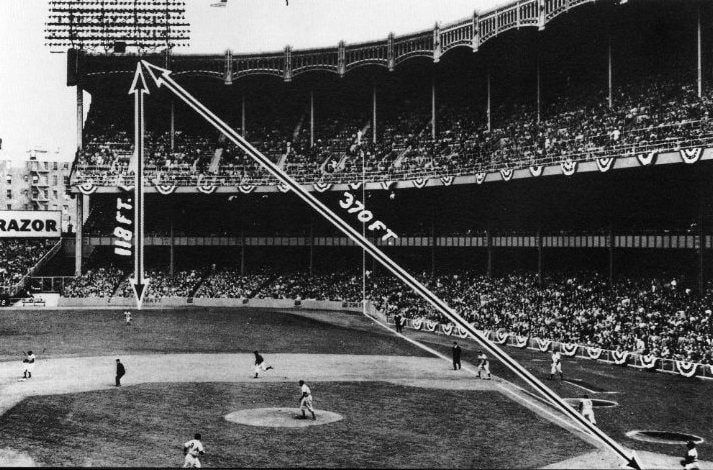 Yankee Heaven. The real Stadium. The Mick hits the facade. Over and over again. Yankee Heaven. The real Stadium. The Mick hits the facade. Over and over again. Big Al passed last Sunday morning. What that means – what I think that means – is that I will not be getting any more emails out of the blue, like: “Just asking. How good a clutch hitter was Yogelah, anyway? Ask your friend Newk.” This was a very personal barb, aimed not just at me but at the admirable Don Newcombe, still working for the Dodgers out in LA, who got creamed by Yogi Berra for two – count ‘em, two – two-run homers in the seventh game of the 1956 World Series. Oh, yes, Big Al remembered. And made sure to remind me. Big Al was a loving member of his own family, but his special charm was getting on a point and pushing it. This made him a great lawyer for a major insurance company, according to Joseph LoParrino, for whom Al was mentor and friend. “Al and I debated every major sports and news story since 1999 and since email was invented,” LoParrino wrote to me. “When the Tiger Woods scandal broke - my phone buzzed. His commentary made you fall over laughing. I could press his buttons in any category.” Big Al was a master in button-pushing. My first contact with him was via his company envelopes and company stationery, before the advent of emails. Big Al would scribble – penmanship obviously not his forte in the public schools of East Queens – lengthy screeds about how I had insulted the current Yankees or, much much worse, The Mick. Al – who was a decade younger than me – thought part of the problem was that I had attended Jamaica High in the 50’s whereas he had attended rival Van Buren High in the 60’s. (He couldn’t blame college, since we both attended Hofstra as undergraduates.) Al let me know, in six pages of briefs, that he knew more about sports than I did because he had played basketball and baseball for the demanding Marv Kessler at Van Buren. I loved his descriptions of Kessler, vilifying him in Queens billingsgate, for sins committed in games or practices. (Many years later, Kessler praised Big Al as player and mensch; Al felt that praise was a tad late.) Every journalist would be thrilled to have a critic like Big Al. We became mail pals, bonding over the long-lost Charney’s deli at 188th and Union Turnpike, and zaftig Queens girls, and Alley Pond Park, and the way the old Knicks played, and really what else is there? Al became my Yankee Everyman, a stand-in for all of them. What he felt, they all felt. Eventually we met for a few dinners at the old Palm on the west side of Second Avenue. Al would deride me for ordering broiled fish and salad rather than the double primo beef and potatoes. Sissy. Weenie. And other Marv Kessler terms. Sometimes he would order a full meal to bring home to his mother who lived in New Jersey. He was such a Palm regular that his caricature was on the wall of valued customers, celebrities or just people who liked to eat beef. (Alas, that caricature seems to have been lost in the move across Second Ave.) By then, Al was no longer the rail of a forward that Marv Kessler had berated back in Queens Village. He was Big Al, Manhattan bachelor, Eastside Al on one email handle. We would talk politics, and he would tell me tales about his service veteran/fireman/tradesman/paper hanger father who gave up his love of the Brooklyn Dodgers for his Yankee-fan wife, Ruth, who had seen Gehrig play. Al was proud to tell me how his mother loved Andy Pettitte more than she loved him. He ascribed it to Pettitte’s schnozz but knew it was about Andy’s gentleness. With no context whatsoever, Al dropped little e-bombs on me about or how Casey Stengel stuck with lefty Bob Kuzava against Jackie Robinson in the seventh game of 1952 and how Billy Martin raced across the windy, sunny infield to catch the popup. Always there was Yogelah, golfing homers off his shoetops, an endless loop of homers off poor Newk (one of the great people I have met in baseball.) Al went silent one year, and I worried, so I sent a letter to his office, and somebody told me he was out on sick leave. When his mom passed in 2009 he took over her house in New Jersey and lived near his sister and her family -- and raved to his friends at work about the joys of the Jersey suburbs. Via the email, he never stopped taunting me, or raving about the Yankees and in particular The Mick. (He loved Sandy Koufax, too.) One time he spoke for all New York fans who flocked to the ball parks on opening day over the decades: streeteasy.com/blog/baseballs-opening-day-nycs-boroughs-influenced-its-pro-teams/ Recently I sent an email: “Al, where are you?” His sister, Roberta Taxerman Smith, emailed me Monday morning saying Big Al had passed Sunday at 67 and the funeral would be held Tuesday in New Jersey. His paid obit was in the Times and on legacy.com: http://www.legacy.com/obituaries/nytimes/obituary.aspx?n=alan-taxerman&pid=188012820 I smiled when I noted that Big Al passed in the Holy Name Medical Center in Teaneck. He was a loyal Jew, and a most ecumenical dude, as many of us were in Queens. He and I exchanged greetings at Rosh Hashanah and Christmas and the first day of pitchers and catchers and other holy days. He knew I had grown up with mostly Jewish friends and he called me “landsman.” When I found out, via DNA testing, that I am 47 percent Jewish, via my father, who was adopted, Big Al's reaction was: I told you so. Then again, that was often his reaction. Roberta Taxerman Smith told me Al believed, to the end, that the docs were going to take care of him and he never complained. He had saved his complaints for Joe Torre’s strategies, and we argued over that, too. Here’s what I really hate about losing Big Al: he I were both looking forward to seeing Aaron Judge and Giancarlo Stanton in the same lineup, the same pinstripes. Murderer’s Row, 2018. If there is justice, on Opening Day they go back-to-back. Maybe Big Al will send me an e-mail. Here is yet another poll I don’t want to hear. According to the highly-respected Quinnipiac Poll, residents of New York City prefer the Mets to the Yankees by 45-43 percent.
I’m a Met fan, totally out of the closet since retirement as a thoroughly impartial, you-never-could-tell sports columnist. I come by my National League/Long Island bias honestly as a boyhood Brooklyn Dodger fan who suffered terribly at the hands of the Yankees (to say nothing of, periodically, the New York Giants.) Quinnipiac is undoubtedly more correct when it says residents of New York State favor the Yankees by 48-34 percent. Those are the kind of odds I would have expected, what with all those World Series plus icons from Ruth and Gehrig to Jeter and Rivera. I have come to assume a lot of perfectly nice people have been swayed by the echoes in the “Big Ball Park in the Bronx” (Red Barber’s alliteration, not Mel Allen’s) and all those championships. Mets fans see their team as an occasional delightful surprise -- that World Series every decade or so, plus gallant efforts foiled by the 1987 Pendleton home run and the 1988 Scioscia home run and the 2006 Molina home run and the 2016 Inciarte catch – plus, the 2000 World Series when rich Yankee fans bought up huge swaths of Shea Stadium tickets. The gloomy words of George Orwell, personified. Now some New Yorkers may be swayed by all those fine young arms and the power of Céspedes and the dash of the prodigal son Reyes and the professionalism of Cabrera. Mets fans have expectations? Dangerous. I still want the Mets to be a minority taste which makes the Swoboda catch and the Mookie grounder all the more special. Then there is this: I don’t want my life guided by polls. Not anymore. Last autumn I was reassured by within-the-margin-of-error polls: the rational would squeak past the raging id. No more polls. * * * Play ball. Which the Yankees did, indoors, at Tampa Bay, on Sunday. By the second inning, I was immediately delighted with the fine details of baseball: -- Rays' LF Mallex Smith took a circular route but caught a fly in foul territory. -- Then, Smith (new to that team) took a piece of paper out of his pocket to scan the defensive scouting on the Yankees. Don't know that I've ever seen that. -- Between innings, the immortal voice of Bob Sheppard urged us -- stylishly, of course -- to follow the Yankees on the YES network. Nice touch. -- As starter Masahiro Tanaka faltered, he was watched intensely by three people in the Yankee dugout -- manager Joe Girardi, pitching coach Larry Rothschild and trainer Steve Donohue. Their faces told me: the real season has begun. The New York Times asked me to write a column for Monday about whether George Steinbrenner should be in the Baseball Hall of Fame.
I remembered being a frequent critic of Steinbrenner, when I became a sports columnist in 1982. I often wrote that he should get out of town, go back to Tampa or Cleveland, because his crude bullying did not belong in Big Town. (Supply your own current punch line to that.) He did odious things but over the years I developed a partial grudging respect for him as a big-timer who could take a certain amount of banter, like most politicians and public figures. I looked at him from the perspective of a childhood Brooklyn Dodger fan who had suffered terribly, who never, ever, rooted for the Yankees. But at least the Yankees stayed in the Bronx, a symbol of domination and bluster and endless sentimentality with all their deities and trained American eagles swooping around the big ballpark during post-season games. Overkill. The Yankee way. But when the Times asked me to write about George and the Hall, I decided he had upgraded a historic franchise, and was – in neutral terms – an epic figure in his business, and he belonged in the Hall. When the column appeared on the NYT web site Sunday evening, many knowing readers criticized my reasoning, in the Comments section. Others wrote to my NYT address. ([email protected].) I was impressed by so many arguments to keep him out: --His meanness discredited anything the Yankees won. ---He broke rules, not as a player but as an owner, and that should count to keep him out. ---In fact, he went from 1978 to 1996 without winning a World Series, the longest drought since Babe Ruth arrived. How smart could he be? ---It was wrong of me to compare his splurging with cable and attendance money with the bargain-basement tactics of pioneer Hall of Fame owners like Connie Mack and Clark Griffith, both former players who helped build baseball. --The Hall voters (NYT writers, including this pensioner, do not vote for such honors) have shunned known and suspected users of PEDs. If McGwire and Clemens and Bonds and Sosa are still outside, what about an owner who hired a gambler to dish dirt on Dave Winfield, who made illegal political contributions? ---He was a bully who mistreated many people, from baseball officials to players to humble workers. This was true. Some readers had one nasty brush with The Boss, and never forgot it. The first time I met him was in 1976, when I was still a cityside reporter and was sent up to the Stadium as the Yanks prepared for their first World Series since 1964. The Boss gushed over my work on Loretta Lynn’s book, but a minute later he reamed out a Stadium supervisor named Kelly for minute imperfections. It was a way for him to demonstrate his power to me. It was embarrassing to be present for this. But four decades later I have come to think he was a giant as an owner, and should get in the Hall one of these years. I love the readers’ comments – so informed, so passionate, and polite. But I think character has long been ignored by the Hall anyway. There are racists in the Hall, from players to commissioners; many great stars led terrible lives – drinking, carousing, misbehaving, to disgrace and early death. Some executives in the Hall are mere lodge brothers, voted in during a simpler time. George Steinbrenner was complicated. He bought a failing franchise and forced it back to the top. He won 11 pennants. He made the Yankees big-time. Finally, I made an allusion to a column I wrote in 1986 urging a burned-out Boss to sell the franchise to a local builder who needed a hobby, a focus in life. I did not mention Donald Trump by name but many readers compared Steinbrenner’s bullying with Trump’s. As a New Yorker, who has met both men, I can attest that Steinbrenner was more centered, more educated, more generous than Trump. It’s not as if anybody was voting for George Steinbrenner to be President, for goodness’ sakes. I thank the readers who prodded my reasoning. Those who care to prod it here are welcome. The debate goes on. Our son was moonlighting as an assistant clubhouse man one summer in Peoria, Ill., where he went to college and worked for the Journal-Star. (He’s got lots of good stories about shagging flies when Jim Thome was visiting his home town, and chatting with Jimmy Piersall, the roving scout.)
One day the Appleton team bus arrived after a long haul from Wisconsin, and Dave was impressed that the young bonus baby sprang for pizza for the entire team. It was not hard to be impressed with Alex Rodriguez. The Appleton hitting coach collected opposing ball caps, so Dave said he would trade one for an A-Rod ball. They walked into the visitors' clubhouse and the coach had A-Rod sign. Dave still has it, on an official Midwest League ball – clearly from A-Rod’s first pro season. I emailed Dave the other day and said, the ball’s value has gone up. * * * Our older daughter, Laura Vecsey, became a sports columnist in Seattle as A-Rod arrived later in 1994, a slender kid with power. Nobody predicted 696 homers – but maybe 500? He couldn’t miss. They got along, in a quirky kind of way, with A-Rod treating her like an older sister. He had mood swings, sometimes chatty, sometimes silent. When his contract was up, he insisted that his next move would not be predicated on money, but rather on comfort level, on loyalty, both ways. When he signed with the Texas Rangers, Laura reflected the attitude of that lovely city that had fallen so hard for A-Rod. She gave him a new nickname - Pay-Rod. He did not much like that. * * * He could have led Seattle to the World Series but Texas was the wrong place for him. He jumped to the Yankees after three years, sticking a conversational shiv between the shoulders of his erstwhile pal, Derek Jeter. By this time, Laura and he were talking again. “Dad,” she said, “he’s always asking what it was like to have a father in the same business. He doesn’t have a father. You ought to talk to him.” She was talking about possible access to A-Rod – all journalists think like this – but she was also talking about a human being who, she felt, was trying to learn, to grow. That spring in Yankee camp, I introduced myself to A-Rod, and we chatted for a while. Nobody is fooled about this dance, but I was always looking to write about the human side of players. When adults like Bob Watson and Curtis Granderson and Mark Teixeira came to the Yankees, I enjoyed learning about them. In the early days of the first season, I was walking in the narrow corridors of the old Yankee Stadium, long before a game. A-Rod was walking toward me, nobody else around. I smiled, said hello. He never made eye contact. Just kept walking. Oh-kay. It was a small thing, but it told me he was in his world, I was in mine, and adult politeness was not part of the equation. I never did see him open up in New York. Sometimes he pretended to open up, but he had too many secrets. His teammates seemed happy for him when he finally helped win a World Series in 2009, but I could not help noticing the disdain Derek Jeter let slip in spring training of 2009, when reporters came around to ask about A-Rod’s latest apology for drug usage. “One thing that irritates me is that this was the steroid era,” Jeter said. “I don’t know how many people tested positive, but everybody wasn’t doing it.” Jeter casually said he had been counseled by his parents as he was growing up. “You’re educated,” he said, adding, “If you do some things, eventually the truth will come out.” Jeter is not the type to let his feelings show. This time they did. My feelings about Alex Rodriguez as he retires from the Yankees? I hope he will be all right. Totally against basic instinct, I find myself sorry for Yankee fans these days.
These are not the Real Yankees but rather the Salary Cap Yankees, a grab-bag of players assembled with some prudence and parsimony, in familiar uniforms. But I am not alone. My friend Mike Lindsley, talk-show host in Syracuse, emitted his own primal scream. You should read this: http://pinstripepassion.com/articles.php (As we say in New York, my heart bleeds borscht. To continue my own take:) It’s not just that the Yankees are off to their worst start in nearly a decade. It's that they are strangers to a baseball fan (me) who is familiar with every nuance of his own team, the Mets, but does not recognize most of these guys. Fact is, when they are home, I don’t even recognize the great theme park of the Bronx, Yankeeland. Warning: Yankee fans should not want my mawkish sympathy. I suffered terribly at the hands of this franchise as a young Brooklyn Dodger fan, and it is totally against my nature to care about the Yankees. Even as a young reporter, I secretly rooted for the Orioles, the Twins, the Red Sox, somebody, anybody. But when the Yankees were bad in the late '60s, I had friends on the team -- Bill Robinson, Steve Hamilton, Ruben Amaro, some of the best people I have known, and after that, I could never feel the same way I did about my October tormentors. Now we have been softened up by a wonderful generation of Williams and Pettitte and Posada and Rivera and Jeter, admirable players. I knew a devout Yankee fan whose Jewish mom noticed Pettitte’s facial profile and kind nature and adopted him. He was the prodigal son; he went away and returned. Bernie sat in the corner and strummed his guitar. Posada was the straw-boss of the clubhouse. Jeter dove into the stands nose-first. Rivera made everything all right, almost all the time. Those core-five players lulled some non-Yankee fans into a neutral position. I turned on the game Sunday night. Fortunately, there was Fenway and there was Papi and there was A-Rod, headed straight to the baseball Limbo known as Bondsville or Clemenstown, but still lofting balls toward the Green Monster. But after all his antics, many Yankee fans do not accept him as true Yankee. There was Teixeira, one of those great mid-career Yankees, and Beltran, a great-late career Yankee, but the rest of the lot give the impression of just passing through. Nobody to love. Nobody to hate. Just guys in Yankee uniforms. I could almost work up a case of nostalgia. In another decade or two. I heard somebody on the radio the other night suggest the Yankees drop Derek Jeter down in the lineup as they make a run at the post-season.
That would constitute not only bad baseball but bad karma. Take it from an old Brooklyn Dodger fan who has never rooted for the Yankees in his long and tormented life, the Yankees need to finish the Jeter generation with him high in the lineup and playing shortstop most of the time. He deserves it, and the Yankees need him, just the way he is. You don’t monkey with the great ones. Casey Stengel put Joe DiMaggio on first base one day – DiMaggio sweated through his uniform, and went to ownership after the game – and Mickey Mantle had to hobble out to first base late in his career because it would have been inhumane to make him play the outfield anymore. Jeter will go out with dignity and competence. He was batting .261 going into Friday, and his range has gone down, but he is not among the top 10 reasons the Yankees are outside the wild-card zone. Joe Girardi knows that. If younger Yankees were playing better, Jeter would be seen as a stabilizing force, but he cannot carry this assortment of mostly strangers and failures. That’s not his game. He always made everybody better, but that was when they had Bernie and Posada and Mo and Andy and all the gamers they collected. That era is over. Just don’t take it out on an epic Yankee who is drawing deserved cheers as he goes around baseball one last time. The only slip I detect in Jeter’s dignity is his huckstering of autographed balls and other so-called collectibles. He is making $12-million on his final one-year contract, and I am not sure he needs to hustle all kinds of junk to rich people just because they can afford to splurge. I don’t see any reference to his foundation or other charities. Maybe Jeter is putting a new wing on his modest Tampa Bay bungalow which locals call St. Jetersburg. (I think it is the model for Putin’s dacha wherever Putin plans to go in exile.) But Jeter’s choice of life style is not the issue here. He has been an epic Yankee, a great baseball player, and the club gains from treating him with respect, through his last game. If the Yankees are out of contention, I think Jeter owes it to himself to show up in Boston for the final weekend, Sept. 26-27-28, rather than pull a Teddy Ballgame and skip the last road trip. He has always been a class act. Let him go to Boston, and let a great baseball town fuss over him. He deserves it. Boston fans know that. This old Brooklyn Dodger fan knows that. Presumably, so does Derek Jeter. * * * This just in. I discovered today's terrific piece by Richard Sandomir, about the Yankees' collectibles deal with Brandon Steiner. I don't get this kind of collecting but am willing to compartmentalize my respect for Jeter the player. Still, when is enough enough? http://www.nytimes.com/2014/09/07/sports/baseball/brandon-steiner-in-deal-with-yankees-is-a-sports-memorabilia-maven.html?action=click&contentCollection=Baseball®ion=Footer&module=MoreInSection&pgtype=article The first baseball sighting was on the tube the other night. The Yankee network YES had the brilliant idea of showing a game last summer with Masahiro Tanaka facing the Tokyo Giants.
American broadcasters, aware of Japanese subtleties, were calling the game, pitch-by-pitch. In real time, Tanaka was chartering a jet to get to New York. My reaction to watching him pitch in the Tokyo Dome -- against those classic orange-and-black-trimmed Giants uniforms -- was that Tanaka was poised, and had a variety of pitches, but not a lot of power. Will he be able to find the extra 5 mph he will need in MLB? Not evident from the few innings I saw. That's the Yankees' problem. More important, I saw baseball being committed. Saw a dandy over-the-shoulder basket catch by a second baseman. And I saw a Giants pitcher wince when he did not get a third strike call from the umpire. Sure enough, he fell apart, started to groove the ball, and gave up four runs. Baseball in mid-season form, with all its human imperfections. I did have one flashback. Playing for Rakuten was Kazuo Matsui, now 38 -- the other Matsui, as he is known in Queens. He is still the only major-league player to lead off three straight seasons with a home run, but Mets fans celebrated when he went to Colorado early in 2006. The Yankees kept their Matsui, much longer. Now the Yankees have Tanaka and the Mets have Matsuzaka. Meantime, my high-school pal Thor Larsen visited Scottsdale the other day and took a photo of the stadium, just waiting for pitchers and catchers. Stay warm. A good actor always knows his cues. The last loads of Super Bowl schleppers were being hauled back to civilization when Derek Jeter entered, stage right.
Jeter took batting practice on the field in Tampa Monday and said he was fine. Of course, he says that when he has broken bones. Funny thing. I was thinking of Jeter last Thursday while watching the current London production of Coriolanus, in our favorite movie house in Kew Gardens, Queens. It seemed to me that the star, Tom Hiddleston, resembled the Yankee captain: A star. A distant star. But a star, nonetheless. Probably not a good recommendation for the production, if your mind wanders like that. Hiddleston is popular with young audiences. (The Queens audience skewed decades younger than usual for the mid-week production, live from the UK.) We saw Ian McKellan play Coriolanus at the National Theatre in 1984, for goodness' sakes. McKellan was 45, an aging and properly arrogant soldier-survivor. Hiddleston looks like a star shortstop. With my mind wandering from this pop version of Shakespeare, I found myself hoping Jeter has one more good year left in him. This is no fun, even for somebody emphatically not a Yankee fan, to watch the wheels fall off one of the signature players of our time. Jeter has started the rallies, clapping his hands as he reached second base, standing up, staring back at the dugout, as if saying, “Next!” He retrieved a wayward baseball and retired a knucklehead who did not bother to slide. (One of my favorite columns:) http://www.nytimes.com/2001/10/26/sports/sports-of-the-times-slide-jeremy-slide-slide.html Jeter has also played an extremely dependable shortstop. He is the Yankee captain. He doesn’t give much of himself away, but he represents the team. Coriolanus would respect him. Is it too much to ask that Derek Jeter be healthy and productive for one more season, clapping his hands at second base and retiring knuckleheads? Plus, he knows his theatre. Football exits, stage left. The captain walks out on the field. In the Copacabana section of Rio de Janeiro, Altenir Jose Silva imitates John Sterling.
Silva is a writer with television and movie credits in Brazil, and he also writes in English, including a recent play about F. Scott Fitzgerald. He also pays around $70 a year to subscribe to a web site that streams Yankee games, direct from New York. He works on his English by shouting, “YANKEES WIN! Thuh-h-h-h-h Yankees! Win!” (It’s only fair. Some Americans imitate soccer goal calls by South Americans.) Silva and I become email pals, and he is a frequent contributor to this site. Recently, he visited New York for a screenplay course and he and his wife, Célia, took their last big trip before she delivers their first child, after years of marriage. We met for the first time at Foley’s, the Irish baseball pub on W. 33rd St. and he had already bought tickets to last Saturday’s Yankee game. Altenir and Célia were glad to hear Curtis Granderson was back in the lineup after his injury; Altenir gave his version of John Sterling’s rendition of “The Grandy-man can, oh the Grandy-man can.” From the nation of Pelé and Sócrates and Romario and Neymar, a man sings of Curtis Granderson. The very nice publicity director of the Yankees, Jason Zillo, arranged for a greeting for Altenir and Célia on the message board before the home half of the third. I advised them to have their cameras ready. They are great tourists. On their last night here, they caught Woody Allen’s weekly appearance at the Café Carlyle with The Eddy Davis New Orleans Jazz Band. Now they are back home in Rio. Instead of imitating Tom Jobim or Caetano Veloso, Altenir warbles along with John Sterling. I recently did a riff in the Times about missing the Boss and his high-spending demands that the Yankees dominate. This was formed by childhood traumas like Billy Martin catching Jackie Robinson’s pop fly, forever.
In case you missed it: http://www.nytimes.com/2013/03/13/sports/baseball/where-are-the-yankees-i-loved-to-hate.html?pagewanted=all&_r=0 However, mea culpa, I forgot to add that it has been an honor to be around the past generation -- Joe Torre and the core five, Jeter, Rivera, Williams, Pettitte and Posada. They were all gentlemen and came through at the highest level. It is not easy to watch Rivera gear up for his last season (and the last season for No. 42.) And it is downright painful to see Jeter trying to come back from a broken ankle. I take the doctors’ word that this is normal stiffness, but players break down at much younger ages. One of these days Jeter will not be there, making a shovel pass to home to catch some opponent too lazy to slide. Remember that? http://www.nytimes.com/2001/10/26/sports/sports-of-the-times-slide-jeremy-slide-slide.html (This just in: my man in Salvador found the clip with a photo of Posada tagging Giambi.) http://www.nydailynewspix.com/sales/largeview.php?name=6pm07l52.jpg&id=59870&lbx=4_389452&return_page=searchResults.php&page=9 There is a human side to the Yankees, including the son-and-heir Hal, who found a place he could avoid his dad, by piloting a plane. That great piece by David Waldstein has brightened this spring. This past generation of Yankees only existed because Gene Michael held the Yankees’ farm system together while the Boss was suspended for nefarious activities. That needed to be said, too. One more season of Rivera and Jeter? That’s not too much for an old Brooklyn Dodger fan to ask, is it? Ever since last Sunday night, I have been thinking how cool it was that Barbra Streisand sang “The Way We Were” in tribute to Marvin Hamlisch. She had not sung at the Oscars in 36 years but showed up with immense energy for her friend.
* * * Having covered one conclave and a few papal trips, I’d like to express my admiration for the way Pope Benedict XVI resigned. I am sure he was giving an intentional signal that the human part of his organization is not working so well. He showed the world that six centuries of tradition did not have to continue – a good reminder in our lives, public and private. . * * * I never thought I’d see the day when the Yankees would not spend money to improve their team. With Curtis Granderson out for a few months, The Boss would be trying to buy an all-star level outfielder, no matter the cost. He was insatiable. I’m not a Yankee fan, but I got used to his zeal for perfection. His sons want to cut the payroll. They must not be making money in their theme park in the Bronx. * * As a huge fan of The New Yorker, I was interested when a saw a long piece by the estimable Ryan Lizza with a photo of Rep. Eric Cantor, but the current article is mostly about the mechanics of ominous politics and economics. I wanted to find out how somebody so low in personality could possibly get elected to public office, but the article gave no clue. What produced this sour and inarticulate human being? The only thing I learned was that he gets along with his mother-in-law, apparently a liberal Democrat. That’s nice, but in his public appearances, lurking behind the shoulder blades of John Boehner, there is no trace of a mensch. A few days early, the groundhog emerges,
Temperatures heading toward the 50’s. The local ball field looks inviting Maybe it is time for opening day. How is A-Rod recuperating? The Yankees, he is told, are looking into new allegations, Trying to bust his contract, be done with him. Is that nice R.A. Dickey ready to win another 20? The Mets let him go, and dissed him on his way out the door. Never mind, the groundhog says. I’m going back down. I’ll miss the baseball season – the regular season, I mean.
Of course, the impending post-season is what gives the electricity to these desparate hours, like the Yankees' and Orioles' 162nd games. I’m not crazy about the one-game format looming for two wild-card teams. This means a team could win over 90 games, be in division contention all year, and have to throw a weary or marginal starter in a one-game shootout. As Ken Singleton was saying on the Yankee broadcast Tuesday night, an entire season could depend on circumstance – a ball lost in the sun, something like that What’s your opinion? Then again, seasons end abruptly anyway. On Tuesday I was with a group of Red Sox fans called the Blohards, who hold occasional meetings in New York to celebrate or mourn. Funny how the names Dent and Boone keep coming up. I told them, hey, my team went away. And my childhood was spent watching Richie Ashburn throwing Cal Abrams out at home and Bobby Thomson hitting that home run, exactly 61 years ago on Wednesday, but who’s keeping track? Yes, I can remember exactly where I was. Where were you for Thomson or Dent or Boone or some other autumnal event? I also remember Red Barber talking Dodger fans off the ledge a year earlier, in 1950, after Dick Sisler’s home run put us into deep misery. His words were like those of a speaker at a funeral service, finding hope. We cannot always win; things come to an end, The Old Redhead said in his eulogy. I think of him every time a season ends the way the Mets’ season is ending. I told the Blohards: remember what Brooklyn fans said: Wait til next year. But they seem to suspect next year has come and gone for a while. I will miss the regularity of baseball, the prosaic daily quality. Whenever I got frustrated with the yakkers and the commercials on television, I could flick to the ball game and find good old Derek Jeter, inside-outing a double to right, or good old David Wright, paddling against the tide. On Tuesday night, there was a late-season cameo, the appearance of Adam Greenberg, who was hit in the head by a pitch seven years ago and got to swing for Miami – against R.A. Dickey. The scene of the Marlins pummeling him in the dugout after his three-pitch strikeout made me choke up. My guess is that every one of those guys understood the fragility of a career. How did you react to the gesture by the Marlins? I hate the idea of a season going away, even another wretched Met season. It is foggy in New York Wednesday morning. The regular season is going away, to be replaced by the post-season, plus the short debate season that signals the end of the American silly season, the long and expensive march to elections. I’m looking forward to the result, to moving on, but I could do without a lot of the foolishness. The regular baseball season – the Orioles and the Reds, Trout and Dickey – is much better than the campaign season. Your thoughts? It is always instructive to get a glimpse of the inner core of Yankee fans.
The other day I was walking down a pleasant street in the Berkshires with my wife and four friends. Puffy clouds played in the clear New England sunshine above the soft green hills. Most of us were fixated on lunch, some on art or window displays. My new friend Joe from Queens was otherwise preoccupied. Great career, family man, terrific shape, funny. And a Yankee fan. “Ha!” he gloated. “Look at this! Not a Red Sox cap in sight. For years that’s all you saw in this town. Red Sox caps. Red Sox banners. Red Sox t-shirts. Red Sox bumper stickers. Red Sox tattoos. Red Sox flags. Red Sox schedules in the windows. Red Sox art. Red Sox names for sandwiches. Guess they’re not so cocky now. How’s that Bobby V thing going for them? How are Beckett and Lester doing? Where is Papelbon? What ever happened to Red Sox Nation? Ha!” That is how I remember his spontaneous monologue. (I told my new pal I might try to reconstruct his diatribe, and he said, not to worry, that no matter how I remembered it, he probably said worse. Or would have, if he had thought of it. Joe from Queens was thoroughly delighted at the downswing of Ye Olde Towne Team.) I did not see any Yankee regalia in the Berkshire streets. The only ball cap I saw was from the University of California. Go figure. The entire Red Sox nation had vanished as the Sox plummeted downward in the Eastern Division. That night my new pal excused himself after dinner and disappeared to his room. Yankee radio and Yankee television were apparently jammed in that corner of New England, but he was following the Yankees on the computer. The next day he supplied details of derring-do by Kuroda and Swisher, Jeter and Chavez, or some such combination. Yankee heroics, Red Sox disaster. The mixture made him downright giddy The Yankees were in a terrible slump a few months ago.
That is to say, they were not in first place. My prototypical Yankee fan friend was fretting and saying they would have to bring in some new talent. I sent a two-word reply: Johnny Hopp. My pal was mystified, in that Hopp is not the classic insurance acquisition the Yankees have made over the decades. He was a fading first baseman they picked up on Sept. 5, 1950 – too late to be eligible for the annual World Series, but he made his modest contributions until early 1952, when his services were no longer required. My point was, the Yankees usually get what they want and what they need. Other names come to mind ahead of Hopp: Cecil Fielder in 1996, David Justice in 2000, and Johnny Mize in 1949. The Yankees always have the money to bring in somebody during a pennant race. They paid $40,000 for Mize, an aging first baseman, on Aug. 22, 1949, and he helped win five consecutive World Series. I can still see Duke Snider and Carl Furillo staring at his three blasts in the 1952 Series. As a young sportswriter, my personal favorite among late-season Yankees was Pistol Pete Ramos, who came over from Cleveland on Sept. 5, 1964 – ineligible for the World Series, to be sure, but he made sure the Yankees got there, pitching 13 times and saved eight victories. Not only that, he jollied up his old friend Mickey Mantle by daring him to stage their long-delayed challenge sprint. By that time, the Mick could hardly walk. Just guessing that Ichiro Suzuki will not propose an old-guy race with Derek Jeter or compare arms with Yankee outfielders, although the word is that he can trash-talk in English with the best of them. He will be a presence. Supply your own moral judgment. My Brooklyn heart was long ago broken by the Johnny Mizes – and the Johnny Hopps. The best thing, maybe the only thing, to do about Mariano Rivera’s injury is to give thanks – not necessarily in the spiritual sense, as he is surely doing in his pain and shock, but in the humanistic sense for having seen the best relief pitcher in history in our lifetime.
What a joy, what a privilege, for all of us to watch him play, to know that nobody was ever this good, this long, this consistently, this overwhelmingly, at that task of saving games. Numbers hardly count. He might be the highest example of sheer excellence in the American majors in our lifetime -- a phenomenon, one of a kind. Marilyn Monroe. Abraham Lincoln. Mo. Seeing Mo, bounding out of the bullpen with that athlete’s stride, one did not have to be a Yankee fan to love it. The legend was that Mo was the best athlete on the Yankees – a team with Jeter and Williams and Rodriguez. They all knew it, the way athletes know these things, the accepted pecking order. They watched him dart unerringly to fly balls during the pre-game shagging. They marveled at the speed and agility. Mo could play center field, they said. In fact, there was talk of letting him play an inning out there, before his career ended. This respect came on a franchise that has seen Joe D and the Mick and Bernie glide through those meadows. How weird that Mo went down while shagging flies, his ACL torn. He was giving hints about having made up his mind to retire after this season, so my first presumption was that he could use the familiar rituals of baseball injury – the surgery, the rehab, the pain, the stiffness, the guys in the clubhouse in the Bronx or Tampa, and then retire at the end of the year. After all, he's done everything he could do. Let him regain that beautiful deer-like rhythm and lope home to Panama. Basta ya. Enough already. But when he got to the clubhouse on Friday, Rivera defiantly said he'd be back, this year, next year, count on it. If Mo says he's coming back, I wish him luck. Meantime, we have the memories, more visual than statistical. The save totals and percentages and earned-run averages can be looked up. What remains is the impression. The clang of Metallica playing "Enter Sandman" as the Yankee Stadium bullpen door opened – this from a highly religious man (a Christian who did not creep people out with repeated witnessing; he stated where he came from spiritually and then talked pitching.) Heavy metal as he bounded across the outfield grass. No chest-pounding, no gestures, no smoke coming out his ears. Just Mo. He induced a respectful frustration from batters. They knew what was coming, a ball breaking down, close enough to the strike zone that they had to swing, had to beat the ball into the earth, producing what high-school players used to call a worm-killer, a grounder. And when he broke a record, the players in the opposing dugout applauded for the gentleman who transcended all rivalries, all frustrations, all wins and losses. Mo. What a treat to be following baseball as player or fan or writer and see Mo excel from decade to decade, three different ones now. The Nineties. The Aughts. The Teens. At some point, Yankee fans and non-Yankee fans coalesced on the realization that we were watching two greatest Yankees at their positions at the same time. Perhaps this happens on lesser franchises (that is to say, all other franchises are lesser.) But on this overwhelming franchise for nearly a century, their greatest shortstop and their greatest relief pitcher came along together from the minor leagues (with the Boss blessedly grounded for bad behavior, unable to blow it all up with his impatience.) There was Cap’n Derek, hitting a double and clapping his hands in exhortation, and there was Mo, with his spare, lethal effectiveness. Mo has been more than a presence on the field, on the tube. He has been a presence in the clubhouse, too. He doesn't gossip much with reporters but in the large clubhouse in spring training he would speak softly and joke around with his fellow pitchers who dressed around him. The wise ones listen. A couple of springs ago, a new pitcher – Spanish-speaking, at that – dressed near Mo. The new man did not listen. Looked the other way. Was in his own world. A colleague of mine caught that tableau and said, “That knucklehead doesn’t get it.” One other thing. We are not going to have to rescind our opinion of Mo in a year or three because of scandal. His body never changed from the whippet rookie to the agile senior citizen. He is not going to be disgraced somewhere down the line like Roger Clemens, currently glowering in a courtroom in Washington. Clemens is going to get off the hook because of the double inadequacy of the prosecution and the weak-mindedness of Andy Pettitte. Little Andy dabbled in illegal substances when it suited him but ultimately could not make up his mind what Big Rog told him in their gym sessions. Having doubts on the witness stand is bad form. You either know something or you don’t. Pettitte looks foolish, Clemens will get off the hook, but everybody knows what was going down in Clemens’ life. This will never happen with Mo. He needs to rehabilitate his ACL but not his image. He was and remains exactly what we thought – a clean flame burning in the ninth inning, eradicating trouble, one-two-three. We have been able to watch. That is worth a cosmic thank-you. Yogi Berra and Stan Musial go way back. They could even have been teammates except that the Cardinals offered more bonus money to Joe Garagiola than to Yogi, which is how history was made, or altered.
Yogi met Carmen at Stan & Biggie’s restaurant – he was wearing golf spikes. On Tuesday at the Yogi Berra Museum and Learning Center in Montclair, N.J., I will be talking about my biography, Stan Musial: An American Life -- about this great and perhaps under-rated Hall of Famer. http://www.georgevecsey.com/books-by-george-vecsey.html This is a paid luncheon event at noon, with a copy of the book included in the admission. For information please check the museum web site or call: 973-655-2378. http://www.yogiberramuseum.org/events.php Stan and Yogi were both seen as good-luck charms by their teammates. I’ll get into that, too. Hope to see you there. GV |
Categories
All
|
